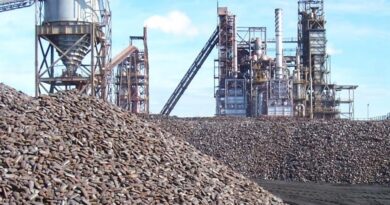South Africa needs a peaceful but far-reaching industrial revolution
South Africans should heed that early history. It was the relative freedom of the individuals who became the industrialists, with no prohibitions to prevent them from inventing new machines, and instituting new methods, that led to the revolution in the production of goods and services. The corn laws, which were in place between 1815 and 1846, prohibited the importation of corn to prevent competition with local farmers. The laws drove up the price of corn-based products to consumers and represented the worst intervention inflicted by the English government on manufacturers and their customers during this period.
Competition and entrepreneurship
Government agencies cannot improve on the competitiveness of open markets and there is compelling evidence that antitrust and competition law reduces rather than increases the choices and welfare of consumers. Conversely, in a legal environment that provides people and their property with protection against criminal violence and fraud, demanding consumers and alert competitors prevent firms from charging excessive prices.
It is, in any case, inconsistent and hypocritical on the part of government to insist on stringent laws intended to increase competition between private firms when the government not only exempts their monopoly enterprises from such laws, but also introduces regulatory measures to prevent private firms from competing with them. The same rules should apply to government enterprises and private firms, which means that government enterprises should receive no special privileges.
According to reports, the Singapore government-owned entities are subject to the same rules as privately owned firms. If this is so, it will be one of the reasons for the economic success of the island nation. However, the most important factor determining the economic success of Singapore is that it has adopted and implemented policies that have made it the second most-free economy in the world after Hong Kong, according to the 2019 economic freedom statistics published by the Fraser Institute and co-published in South Africa by the Free Market Foundation. The incursions by China into Hong Kong policies are expected to reduce Hong Kong’s freedom ranking when the 2020 analysis becomes available.
A true economic revolution
Four guides, three modern and another from the distant past, provide indicators as to how to bring about a peaceful and positive economic revolution in South Africa. The industrial and education revolutions that took place in England are indicators of what can be done when greater economic freedom comes about in a country in which the population has previously been economically constrained, for whatever reason. The island economies of Hong Kong, Singapore, and Mauritius, which developed in different ways but all towards greater economic freedom, are good examples. Their respective world rankings in the 2019 Economic Freedom of the World statistics were, Hong Kong 1st, Singapore 2nd and Mauritius 11th while South Africa was 84th out of the 165 countries measured. A long way to go for South Africa to move into the top echelon so the sooner South Africa starts taking pro-economic freedom decisions the better off South Africans will be.




